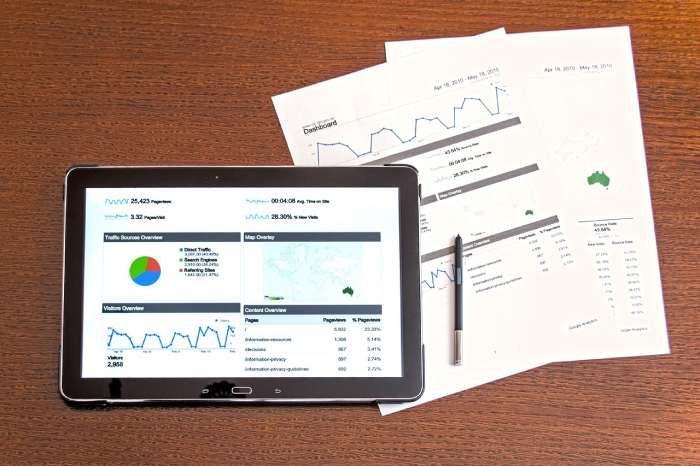Everyone knows that search engine optimization (SEO) is important for local business. It increases the community’s awareness of your business, generates more traffic, and gets you more conversions. Understanding how SEO works helps you to build a strategy to improve your local SEO with tools that benefit local businesses.
However, what you also need to track are your local rankings. Tracking your local rankings provides data that helps to continually improve your opportunities for optimization, visibility, and awareness of penalties. Keep track of your local rankings so that you stay ahead of your competitors and remain relevant in searches.
Understanding Rank Tracking
![]()
While no rank tracking system will ever be one hundred percent accurate, it’s important to understand why. Rank tracking systems report different results to each person on each device every time. These results vary based on factors like location, time, device, browser, and search history.
While a search rank tracker can’t compare apples to apples in ranking reports, it can provide value in other ways. Tracking your local rankings is still relevant because it can help you identify low hanging fruit, show your ranking around the city, display ranking trends over time, and alert you to major changes in your rank.
Keyword Opportunities

If you currently rank between fourth and tenth on search engine results pages (SERPs), you have some pretty high opportunity keywords that, if optimized appropriately, can push you into the top three spots. The top three positions on SERPs get sixty percent of the clicks, so it’s important to getting more users to your site.
By keeping track of your ranks and how your keywords are performing, you can identify which keywords you can maximize to increasing your rank and return in one of the highly-coveted top three positions on any SERP. Using Google ranking reports, you can identify keywords and their rank so you can focus efforts on the appropriate ones, increasing your rank and getting more customers.
Google My Business and Local Snack Packs

Google classifies the top three results on each results page as a Snack Pack. As a local business, you need to claim your Google My Business listing to take advantage of the local benefits. Only businesses who have claimed their Google My Business listings show up in Google’s Snack Pack.
The majority of local businesses haven’t claimed their Google My Business listings, meaning this puts you at a huge advantage over other local businesses and increases your chances of being included in the Snack Pack.
Be sure to include as much useful information in your Google My Business listing as possible. Business name, address, phone number, email, URL, photos, and a description all help to make your listing appealing. Reviews also give your listing credibility. You need to make it easy for customers to contact you by whichever means they prefer, ensuring that you remain relevant in SERPs.
Effective Optimization
If you don’t rank in one of the top three positions for keywords, chances are you won’t see any significant increases in website traffic. It takes time to improve your ranking position, so sometimes it’s difficult to tell if your efforts are paying off.
Monitoring your local rankings over time shows any progress you make, even if you don’t return in Google’s Snack Pack. If your SEO strategy is working, your rankings will steadily show improvement. This leads to more website traffic and increased conversions.
If you don’t monitor these statistics, you won’t know the fruits of your labor, and you can’t make improvements. Constantly tracking your local rankings makes it easier to know what works and what doesn’t.
Diagnose Site Issues

Tracking your local rankings can also help diagnose major site issues and alert you to Google penalties. Google takes into account the performance of your site in addition to keywords. If your page speed is slow or your website is unresponsive, it will stop appearing in SERPs.
Google can’t index properly if it can’t read the contents of a page, so you need to know immediately if this happens. You can use any of the free or paid on page SEO checker tools available online to find out major on-page site issues.
Continually monitoring your rankings can alert you to possible issues. For instance, if some keywords begin to fall on the ranking report, but others don’t, you may have an indexing issue on some pages but not others. You can quickly identify which pages have issues by looking at past data.
Google imposes manual penalties when it identifies over-optimized pages. When you use keywords too often to try to boost your rankings, Google catches on to your keyword stuffing and penalizes you for what is considered spamming.
These penalties affect your entire website, not just specific keywords. If all of your rankings disappear, Google may have given you a manual penalty.
You may also get a local penalty from Google if you violate the terms of the Google My Business listing. False or spammy business names and duplicate Google My Business listings create these local penalties. If your maps rankings disappear, but your organic rankings don’t, this could indicate a local penalty.
Tracking your local rankings alerts you to local penalties very quickly because you can see local rankings and maps rankings separately, meaning you can identify local penalties immediately and focus on fixing your Google My Business profile.
Your Competitors
When tracking your local rankings, you may wonder if your competitors are affected by a drop in keyword rank. Knowing how you measure up to your competitors is valuable information when optimizing your website.
Using tools to track your competitor’s performance in SERPs helps you understand how competitors gain at your expense so you can improve your optimization efforts and stay ahead of the game.
Diagnostics and Reporting

Read More:5 Powerful SEO Hacks That Will Rank You Higher In Search Engines
If you see unusual fluctuations in organic traffic, you have data at your disposal to diagnose the issue. By tracking your local rankings, you can keep up with your website performance and how it affects your traffic. It could provide meaningful insights into a new competitor that bumped your rankings or some poor link building you thought you fixed.
If the new content you added boosted your rankings, it tells you that as well, and these are the types of things your bosses and clients like to see.
While you shouldn’t focus your reports on rankings alone, they are good statistics to provide. When you develop an SEO strategy to improve your rankings, you should have solid data to support your success.
Let’s face it. No matter how good you are, you really, really like to be number one. SEO and tracking your local rankings can help ensure that you reach and maintain the number one spot.
Rankings aren’t the only metrics you should use to measure your success. However, it does help you keep track of other important factors that can improve your SEO.
Sometimes focusing on rankings alone prevents you from seeing the bigger picture. Understand the importance of rankings and what they mean, but realize they’re not everything. Keep tabs on your rankings and implement changes where you see fit to benefit your SEO strategy and your overall business performance.
Feature Image Credit: Image Given By Author
In Post Image Credit: Image Given By Author




